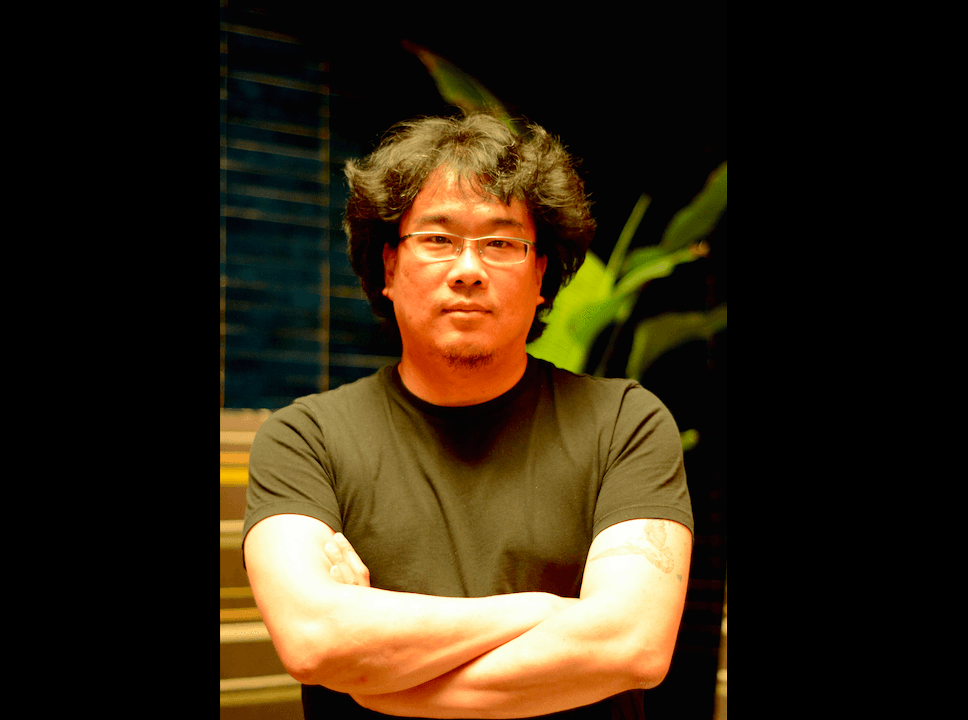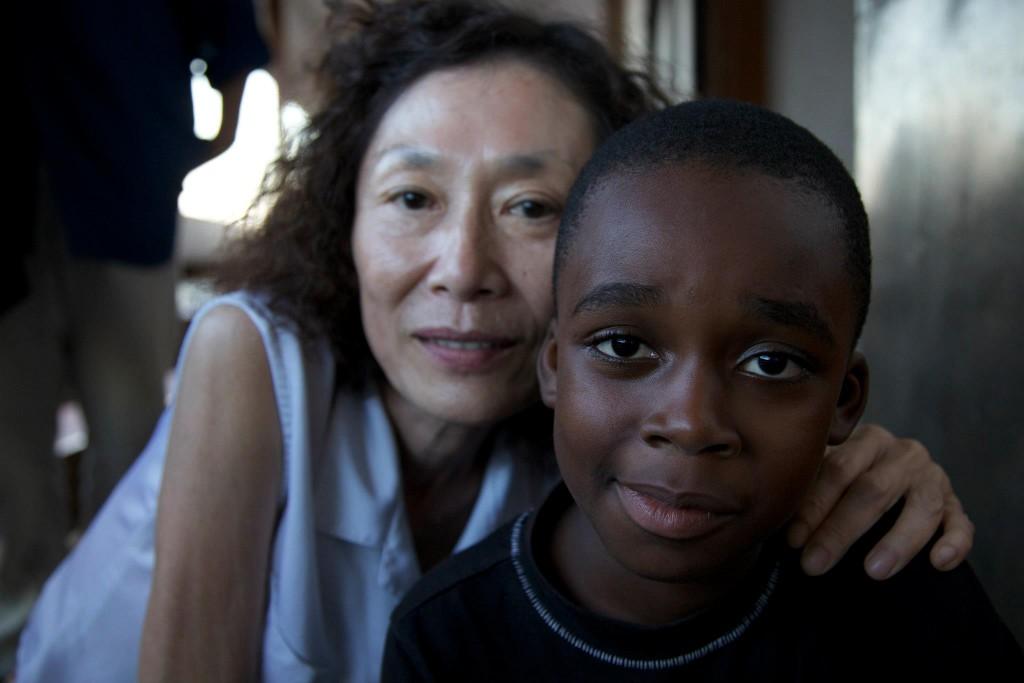NEW YORK—Korean filmmaker Bong Joon-ho, who my Korean co-worker tells me is a big shot in South Korea, greets me with a nod. As we wait in the spacious lobby of a Tribeca hotel with a modern Asian feel, on Wednesday, June 25, Bong wraps up an interview with another journalist.
Bong is on a U.S. press tour for his first English-language film, “Snowpiercer,” a post-apocalyptic story starring Tilda Swinton and Chris Evans.
His co-producer and translator, Dooho Choi, sits next to him holding a notepad and a pen. They sip exotic drinks in between questions. Choi tells me they’ve been friends forever.
Bong, who’s wearing an unbranded gray T-shirt, says he’s a comic-book collector, that he’s been drawing comics since a young age, and that he once had a job as a cartoonist at his college paper.
Sometime in 2004, however, Bong stumbled upon the translated version of Jean-Marc Rochette’s French graphic novel series “Le Transperceneige” (“Snowpiercer”) at a South Korean comic book store that he frequents.
Absorbed by the story, Bong read the entire graphic novel on the spot.
“As I was walking out of the shop, I was determined to make [the novel] into a film,” he says.
‘Snowpiercer’
“Snowpiercer” is a sci-fi action flick about the class struggle aboard a train that runs on a perpetual-motion engine. Set in a post-apocalyptic world, after a global warming experiment goes terribly wrong, the characters on the train become the only known survivors on the planet.
Inside the train, however, is a world of its own. Mason (Tilda Swinton) becomes the headmaster of the train, with all her subordinates. But as frictions between the upper and lower classes escalate, Curtis (Chris Evans), one of the proletariat, forms an uprising that leads to class war.
The idea of survivors on a train was what attracted Bong to the story. But it wasn’t until nine years later that “Snowpiercer” the film was ready for the public.
Even though Bong made two other Korean-language films in the meantime, the novel stayed on his mind. “Snowpiercer” first premiered in Korea on Aug. 1, 2013.
It then came out in Europe, most of Asia, and in U.S. cities, with New York being the last stop.
“It took a year to get here, just like it takes a year for the train to make a revolution around the Earth, so it feels like this is the last stop and I feel a sense of closure,” Bong says.
Most Western press reviews call Bong’s filmmaking style unique. He’s known for writing interesting characters and creating mysterious plot twists.
“I think these come from my personality, my habits or lifestyle. I never arrange or plan for that when I write my script,” Bong says, describing himself as the guy who’s never able to fit in at the party.
“I’m always the odd man out, and awkward,” he says.
When I asked him about a tattoo of what looks like a dove in flight that peeks out from under his T-shirt sleeve, he joked that he likes to eat those kinds of birds. He then puts on a serious face and tells me in decent English: “I’ve tried once, but it’s not good. Never again,” Bong says and then laughs.
Working With Hollywood Stars
For “Snowpiercer,” Bong worked with mostly Western actors as leads, and European production companies, but he said that communication and translation was not a struggle.
“We use same or similar equipment, we all have same lunch break around noon … so the pattern is pretty much the same,” he explains.
Actors like John Hurt and Tilda Swinton were attached to the project early on.
In the case of Swinton, Bong knew her work from the time she filmed “Orlando” in 1992 and was a big fan. Swinton likewise was a fan of “The Host,” which Bong wrote and directed in 2006.
But when the two finally met at the 2012 Cannes Film Festival and were enthusiastic to work on something together, Bong realized he had no characters readily available for Swinton. Bong then took the lead character Mason, written for a middle-aged man, and changed the gender.
Chris Evans, who was also looking for a more independent title to work on alongside his “Captain America” duties, also expressed interest in being part of the film early on.
“A lot of people see him as this muscle, superhero action guy, but he’s actually very sensitive, and he has a quiet and introverted side. He’s a very, very smart person,” Bong says about Evans.
Bong was also interested in adding Jamie Bell, Octavia Spencer, and Ewen Bremner to the cast, and then with recommendations from his casting directors, he made the call.
The final person to get attached to the film was Ed Harris, who plays Wilford, a mysterious Marlon Brando of “Apocalypse Now” type of character, whose voice can be heard but who is not seen until the end of the film.
While promoting “Snowpiercer,” Bong has been working on two new Korean-language film scripts, which he says he can’t yet define in terms of genre but that they will be “unique and weird.”
We'd expect nothing else.
“Snowpiercer” is showing at the Nitehawk Cinema, City Cinemas Village East Cinema, and Angelika Film Center in New York.
Additional reporting by Hyesoo Yoon, producer/host of NTD Television’s “Hallyu World” and “K-talk”





